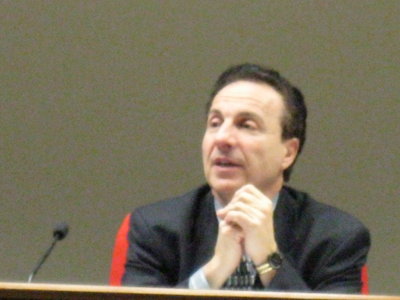HUDSON COUNTY — On June 26, the Hudson County Freeholders passed the $512 million county budget, with three of the freeholders that represent portions of Jersey City voting against it.
Residents of Hudson County pay an overall tax amount that is comprised of county, local, and school taxes. The county budget only affects the county portion.
Although not as bad as first aniticipated, Hoboken still got hit hardest in its percent of the county taxes this year. Jersey City also got hit with a hefty increase. Weehawken also saw a moderate increase.
Freeholders Bill O’Dea, Junior Maldonado, and Anthony Romano (who also represented Hoboken) voted against the budget.
“This is not an attack on the county executive or the freeholders,” Romano said. “Basically I’m angry at the state formula that is used to calculate the tax increases.”
The state formula requires those towns that see the most increase in new ratables (taxpaying properties) during the prior year to pay a larger portion of the county tax. New development often means a municipality will see a higher tax on the county level. This accounts for the moderate increase in Weehawken, which saw a number of new projects. Jersey City is leading the state in new development – much of which is tax abated, leaving a larger impact on unabated taxpayers.
Even more significantly is that county taxes are based on full assessed value, and not a percentage of value as it is sometimes calculated for municipal and school taxes.
What taxes a town pay or not can vary sharply from year to year. For instance, last year, Secaucus’ share of county taxes rose, this year, Secaucus will see a 4 percent reduction in its share of county taxes.
Freeholders, however, made a number of cuts that reduced Hoboken’s increase from originally proposed 18 percent (about $61 million) to 14.9 percent. This means that a home assessed at $552,340 will see an increase of $378.
Jersey City meanwhile saw only a moderate cut in the increase from a proposed $102.3 million to $101.6 million, which means taxes will go up about $100 on a home assessed at $93,000. — By Al Sullivan
Our Digital Archive from 2000 – 2016
